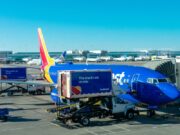
It’s easy to learn from mistakes … the mistakes of others of course! Unfortunately, it seems like we all must go through some level of trials and tribulations to figure out what’s important and meaningful to us in life.
Maybe a few things I’ve written in this article can shortcut some of the most painful lessons learned. Every once in a while, it’s fun to pretend your kids will listen to you when you give them some financial advice. And if there’s zero chance of them at least pretending to pay attention, maybe I can think about what I would tell my younger self if I had it to do all over again. Here goes!
- Start saving something, anything, now!
I got stuck in an exercise rut a few years ago. I was exercising without intention and slowly getting fatter and more out of shape. I knew I had to get out of my comfort zone if I wanted to change course. For me, I chose to join my local CrossFit gym. What I love most about CrossFit is that all I have to do is show up. If I can just muster the energy to show up and be consistent, the changes will start to happen eventually.
Saving and investing can be similar to exercising. Get out of your comfort zone and start saving with intentionality. If you have to, start by saving a small amount. You will eventually begin to experience some victories. Even saving and investing a small amount can create a sense of accomplishment, build momentum and a desire to save more.
Know that there will be seasons in your life that you may not be able to save anything for retirement. For example, you may need to dip into a strike or furlough fund. Additionally, pilots are particularly susceptible to unexpected disability that could cause temporary financial hardship. Prepare for these times now by saving more while you’re able to.
Most airline 401ks have a Non-Elective Contribution (NEC) feature. This means the airline will contribute to your 401k even if you choose not to. Warning: only use this as a temporary crutch. If your airline’s NEC is your only source of savings, it probably won’t be enough for retirement.
Practical tip: Most 401k plans have an option to automatically increase savings. This is a great option as you probably won’t notice the increase in savings over time. Consider implementing this with your IRAs and cash savings as well. Check out How to Save Money Now (Before You Really Need it) from NerdWallet.
- Learn To Say No.
“… but I deserve it!” And no — just because you work hard and have overcome a lot of obstacles to be where you are, does not mean you deserve that new car — unless the math says you do. There’s nothing wrong with a new car, new boat, tractor, etc. But there can be a real danger of believing we deserve something if the spending plan doesn’t support it.
As a financial planner, we understand that most of the time “the math” is only part of the decision-making process. For example, paying off your house early is a huge win for your peace of mind regardless of your mortgage interest rate (i.e., the math). Some people are happy to forego the advantages of a low-mortgage interest rate to own their home free and clear. The peace of mind from being debt free is hard to put a price tag on.
However, when it comes to spending decisions, it’s all about the math. Do the math in your spending plan, and don’t lie to yourself about what you can afford. (See point number four below.) I realize I’m stepping on some toes here, but I get a little passionate about this type of mindset because it’s the precursor to an attitude of entitlement and nobody wants that!
You must bring future expenses into the present and plan for them. We get a false sense of how much money we really have when we ignore large expenses coming in the future. For example, if your car is paid off and you have 200,000 miles on it (my truck), then you better start saving now for the car you're going to need very soon to replace the old one. Do not wait until the oldy-but-goodie gives out and then act surprised.
Practical tip: Change your money-mindset with YNAB. Invest the time in learning to use some sort of budgeting system. A smart spending plan will set you up for lifelong financial success and will prevent most money problems in marriage as well.
- Prepare for the Murphys to Move In.
Flying is easy until the you-know-what hits the fan! Pilots get paid for being able to handle the unexpected; dynamic weather, crazy air traffic control, passengers, mechanical problems, etc. The only thing that differentiates a great pilot from an average pilot is being ready for the unexpected, unplanned events. Otherwise, anyone could be a pilot, including AI! That means the biggest differentiator between a great pilot and an average pilot is preparing for those contingencies.
The same is true with your finances. Dave Ramsey says it best about not being prepared for financial contingencies and emergencies, “Murphy will move into your spare bedroom. Plus, he'll bring his three cousins — Broke, Desperate and Stupid — with him.”
As I mentioned above, many pilots will experience a disability at some point in their careers. Unfortunately, an even larger number of pilots will (or have already experienced) divorce. As financial planners, we discuss recessions, downturns, and market corrections extensively. However, a divorce will have a much more devastating financial impact than almost any economic or stock market event. (See point number five for the simple solution.)
Learn to live on less than you make. This creates margin in your spending plan. Once there is no margin in your spending plan, there is no room for life to happen. A relatively minor event, such as replacing a heating and air conditioning system, new roof, sickness or injury could cause financial hardship. If (when) these things happen to you and you’re not prepared, the only place left to turn is credit cards, 401k loans, etc., all of which are bad options.
We often model a young pilot's financial trajectory. The amount of dollars a young pilot will be able to accumulate during their flying career is mind boggling. In fact, the numbers are hard to comprehend because sometimes we are forecasting forty years into the future. However, the trajectory in real life is never that linear or predictable and is often messier than we could ever imagine.
Life is crazy, an airline career is crazier, be ready for anything!
Practical tip: An airline pilot should have a much larger emergency fund than other professions. Think disability, furlough, strike self-insurance. A large emergency fund doesn’t have to be one hundred percent cash. Furthermore, there are good interest rates on savings these days. Use a taxable brokerage account at Schwab, Fidelity, Vanguard, etc. These accounts allow you to access the funds before you retire without early withdrawal penalties.
- Stay in your (financial) lane.
President Theodore Roosevelt is credited with the saying, “Comparison is the thief of joy!” This is the most difficult of the five principles. And it’s complementary to number two; “Learn to say no,” especially if my airline-pilot neighbor has a $150,000, 2024 Moomba Mojo Wake surf boat (seriously, google it!) and an $80,000 Ram Power Wagon truck …
Additionally, how do you know whether you are doing well financially? What’s the benchmark? I believe we are curious, and we genuinely want to know if we are going to be okay. And that’s a good thing. So instead of comparing yourself to someone else, do the homework and figure out if you’re on the right track — according to your values and goals, not someone else's.
I can tell you from the perspective of someone who sees a lot of airline 401k balances, it is impossible to know if someone is “on track” solely by the amount they have invested in a 401k. Unless you do the homework, you won’t really know either. For example, two people may have the exact same 401k balance as they approach retirement. One person needs $15,000 per month to live on in retirement and the other needs $10,000 per month. Which of these pilots is on track, relatively speaking?
Practical tip: Accomplish a financial plan. More specifically, retirement income projections. How much will you need to fund a great retirement? How much will you need to never have to worry about running out of money in retirement? There are online calculators, but this is where I believe you should seek out a fiduciary, fee-only financial planner.
- Treat all aspects of your life as an investment.
This principle is more about mindset than anything else. I believe if you adopt this mindset, your quality of life will far exceed those who have a transactional or scarcity mindset.
Relationships, your time and your health are great examples of investing for great returns other than those found in the stock market. Take care of yourself and invest in your health for the long term.
Understandably, when you’re flying it is very difficult to invest heavily in relationships because you know you may never see that first officer or captain again. But what if you made it a goal to invest in the person sitting next to you just a little bit more by offering words of encouragement, professional advice or just being an empathetic listener. Engage above ten thousand feet of course!
Most importantly, what if we invested more in our marriage and children? Staying married is the best financial planning advice anyone can implement. If you think a recession or market correction is bad for your retirement savings, try going through a divorce. Or rather, avoid going through a divorce, if at all possible. The best way to do that is to invest in your marriage now.
Practical tip: What if we spent even twenty percent of the effort on our marriage and children as we did our flying careers? Can you imagine the heartache (and headaches) you would avoid for the rest of your life. Now, that is a great investment!
Please let us know if we can help you on your journey to financial peace and prosperity! Click here to sign up for our newsletter or click here to schedule some time to chat about your circumstances in more detail. Also, check out our Pilot Money Guys podcast where we regularly discuss these types of financial topics along with some fun airline news updates and interesting guest interviews. Even the editor and found of Aero Crew News – Craig Pieper!





















































































































